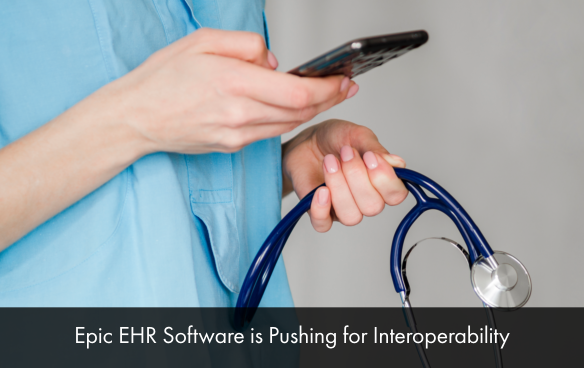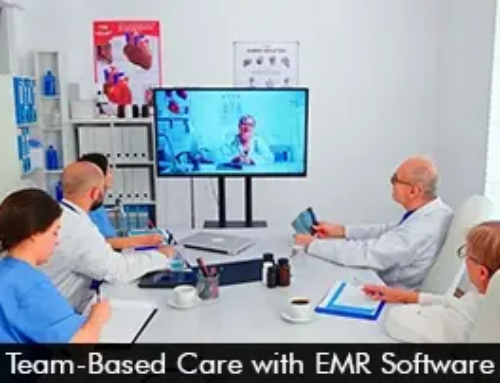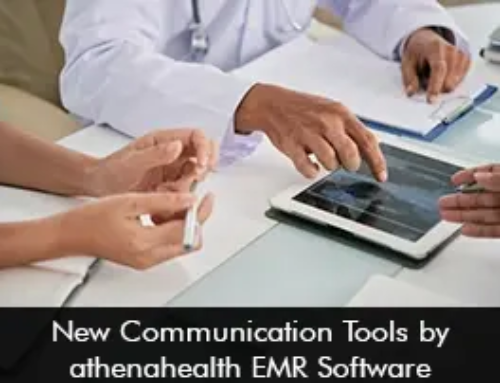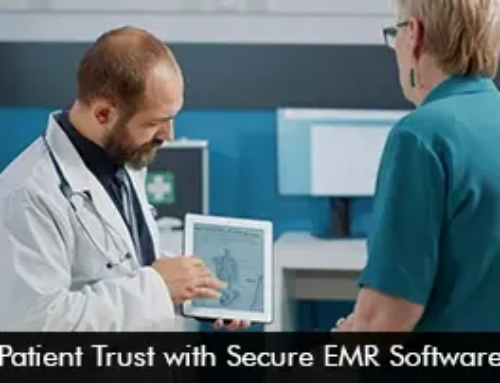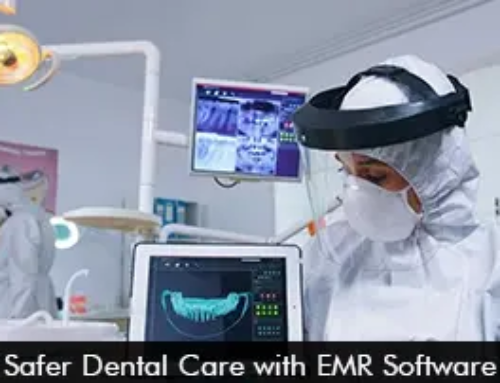The push for interoperability in the Electronic Health Records (EHR) industry is transforming how healthcare providers exchange and access patient data. Historically, healthcare systems have been siloed, with different EHR platforms struggling to communicate.
Epic is now among many EHR vendors prioritizing the development of tools that will facilitate seamless data sharing across healthcare networks. With Epic’s new API, which allows patients to connect EHR data with third-party apps, how might this impact the rest of the industry?
Epic’s brand new API for interoperability
Epic, one of the foremost vendors of EHR Software Systems, has just introduced a new API to allow patients to seamlessly import health information to a third-party app (e.g. health & exercise apps).
Consumers have long been able to connect data, from EHR systems, with health apps such as Apple Health, however, it wasn’t true data exchange between providers. Through the Trusted Exchange Framework and Common Agreement (TEFCA), healthcare networks now have a way to bridge this gap and easily exchange data.
Health apps that are part of TEFCA will require patients to authenticate with MyChart, Epic’s patient portal system. This can be used to access their TEFCA directory, and then subsequently find all health information related to the patient.
Concerned about HIPPA?
This naturally raises questions about HIPPA and other privacy-related issues. Since consumers can freely take their information outside of the HIPPA ecosystem, measures must be put in place to ensure that they’re educated and informed and that app developers can be held accountable.
This is why the HHS has allowed apps to volunteer to participate in TEFCA, with the condition that they comply with HIPPA – regardless of whether they’re legally obligated to or not. This allows Qualified Health Information Networks, such as Epic, to inform users on whether their chosen app meets HIPPA requirements or not.
Furthermore, Epic EHR has developed a system to inform users when they decide to import their health data to another app. When a patient authenticates via Epic’s MyChart, the system displays a notice informing the consumer of the privacy policies and practices of the app in question.
A green screen means that Epic can verify the app is HIPPA compliant. A blue screen means that the app isn’t necessarily covered by HIPPA, but Epic will still provide all details about their data policies. However, if Epic isn’t able to verify their data practices, patients will be warned with a red screen.
The Growth of Interoperability
Epic has been proactive in influencing interoperability standards within the Electronic Health Records (EHR) industry. A while ago, Epic also launched the Connection Hub, which served as a database for vendors that were interoperable with Epic. At the time, this initiative was a great step towards improving interoperability. This was also in conjunction with Epic joining TEFCA in 2023.
Since they went live in December 2023, TEFCA has laid the groundwork for healthcare networks to start securely exchanging information. Epic was one of seven organizations that helped TEFCA set up their Qualified Health Information Network (QHIN) based information exchange.
Epic’s solution could greatly improve interoperability for mobile health apps and be greatly influential in the next few years – bringing patients closer to having a single unified digital health record.
Whilst we may still be a while away from true interoperability within the health IT sector, the industry seems to be making good progress. As of TEFCA’s latest update in April 2024 (Common Agreement Version 2.0), TEFCA included requirements for FHIR-based exchange. Once fully rolled out, this change should allow healthcare organizations to achieve more scalable and standardized data exchange.
Conclusion
Epic’s ongoing commitment to enhancing interoperability in the healthcare industry is paving the way for more seamless data exchange and better patient care. While challenges remain, the strides made by Epic EHR Software and frameworks like TEFCA signal a promising future where healthcare information can be securely and efficiently shared. As these developments continue, we can look forward to a more connected and patient-centered healthcare experience.


